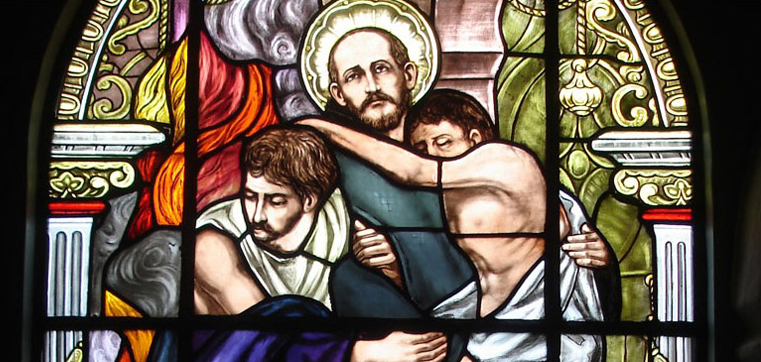A Man Called John
In 1539, Granada, Spain was a bustling city, growing ever wealthier due to the explorations of the adventuresome explorers of the New World. However, as the rich became richer, the poor became poorer, more forgotten and ignored.
The sick, the old and the handicapped often were left in the gutter to die or to beg. Juan Ciudad, a man who later would be called “of God,” went about the streets of Granada imploring all he met to “Do good to yourself by doing good for other.”
Hospitalized himself for what people imagined was a “mental breakdown”, he discovered the redemptive value of suffering. Transformed by this experience he labored for three years, unceasingly caring for those in the pain and anguish of suffering. He opened the doors of his own hospice and called it a “House of God.”
As a result of this experience John of God became a person who was in touch with the health care needs of his time. He acted to give shelter to the poor, offer healing to wounds but most of all he opened his heart as a space where people could feel respect and recover a sense of dignity and became well once again. He paid attention to the needs of people rather than manage a complex structure of services he offered himself as a channel of empowerment.
St. John of God understood that love has a healing and therapeutic value for those who are sick, dying and abandoned. Relationships are healing and so he opened the doors of his hospice offering a home where people were respected and recovered their sense of dignity.
John came to realize that providing food, shelter and a sign of hope to those he cared for was not enough. Christ’s message extended also to the entire community. Even in his begging for food and alms, John saw an opportunity for others to participate. "Do good for yourself," he said, "by doing good for others." His example would soon attract others to join him in his works of charity. They, too, shared similar backgrounds and found new life in John’s faith in Christ and his conviction in serving others. The legacy of St. John of God the Father of the poor and sick, was a movement of compassion that has continued and grown through the centuries. The followers of St. John of God today sum up his spirit in the word Hospitality.
John of God died at 55 years of age on March 8 1550, of pneumonia, after he had plunged into a river to save a young man from drowning. In 1690 he was canonized by Pope Alexander VII, and in 1886, Pope Leo XIII declared him the patron of all hospitals and the sick. St. John of God is also recognized as patron saint of nurses, booksellers and firefighters.

